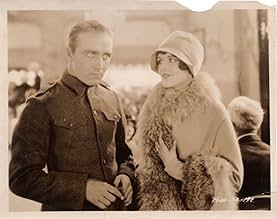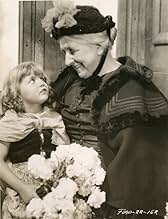A family saga in which three sons of a Bavarian widow go to war for Germany and the fourth goes to America, Germany's eventual opponent.A family saga in which three sons of a Bavarian widow go to war for Germany and the fourth goes to America, Germany's eventual opponent.A family saga in which three sons of a Bavarian widow go to war for Germany and the fourth goes to America, Germany's eventual opponent.
- Awards
- 3 wins
Frank Baker
- Soldier
- (uncredited)
George Blagoi
- Officer
- (uncredited)
Stanley Blystone
- Officer
- (uncredited)
Carl Boheme
- Officer
- (uncredited)
Constant Franke
- Officer
- (uncredited)
Storyline
Did you know
- TriviaThe film set a permanent attendance record at New York's Roxy Theater
- GoofsIn the New York City sequences, which take place immediately after World War I (1919-1920), all of the women's fashions are strictly in the style of 1928, and all of the automobiles are of late-1920s design.
- Quotes
The Schoolmaster: Books, Herr Postman, are friends that never deceive,
- ConnectionsFeatured in Hollywood (1980)
- SoundtracksLittle Mother
(1928) (uncredited)
Music by Erno Rapee
Lyrics by Lew Pollack
Sung by Harold Van Duzee and the Roxy Male Quartette
Featured review
Sentimental, but not mawkish, the early John Ford silent, "Four Sons," is a well made film that exemplifies early 20th century values. The four sons of a Bavarian widow are swept up in the events of World War I. Three of the boys fight for the Kaiser, while the fourth, who had emigrated to the United States, is on the opposite side. The screenplay does not dwell on politics, although the German officers have villainous characters, and the American son chastises an employee for advocating war, because "America is neutral." Most of the action takes place in a small village in Bavaria, and the unspoken message is that ordinary Germans are as kind and feeling as people everywhere.
Despite a predictable storyline, the performances avoid the "grand style" that gave silent acting a bad name. Made in 1928 at the apogee of the American silent era, John Ford's direction is solid, and the film foreshadows his adaptation of "How Green Was My Valley" more than a decade later. Certainly the two strong mothers who suffer the absence of their sons have much in common. If John Ford had not directed "Four Sons," the film could have been largely forgotten. Plot holes abound, and coincidences occur that "only happen in the movies." However, the film is a good example of popular entertainment in the late silent era, and modern audiences will likely be engaged, especially students of Ford and those with an affection for silent movies.
Despite a predictable storyline, the performances avoid the "grand style" that gave silent acting a bad name. Made in 1928 at the apogee of the American silent era, John Ford's direction is solid, and the film foreshadows his adaptation of "How Green Was My Valley" more than a decade later. Certainly the two strong mothers who suffer the absence of their sons have much in common. If John Ford had not directed "Four Sons," the film could have been largely forgotten. Plot holes abound, and coincidences occur that "only happen in the movies." However, the film is a good example of popular entertainment in the late silent era, and modern audiences will likely be engaged, especially students of Ford and those with an affection for silent movies.
Details
- Runtime1 hour 40 minutes
Contribute to this page
Suggest an edit or add missing content





































